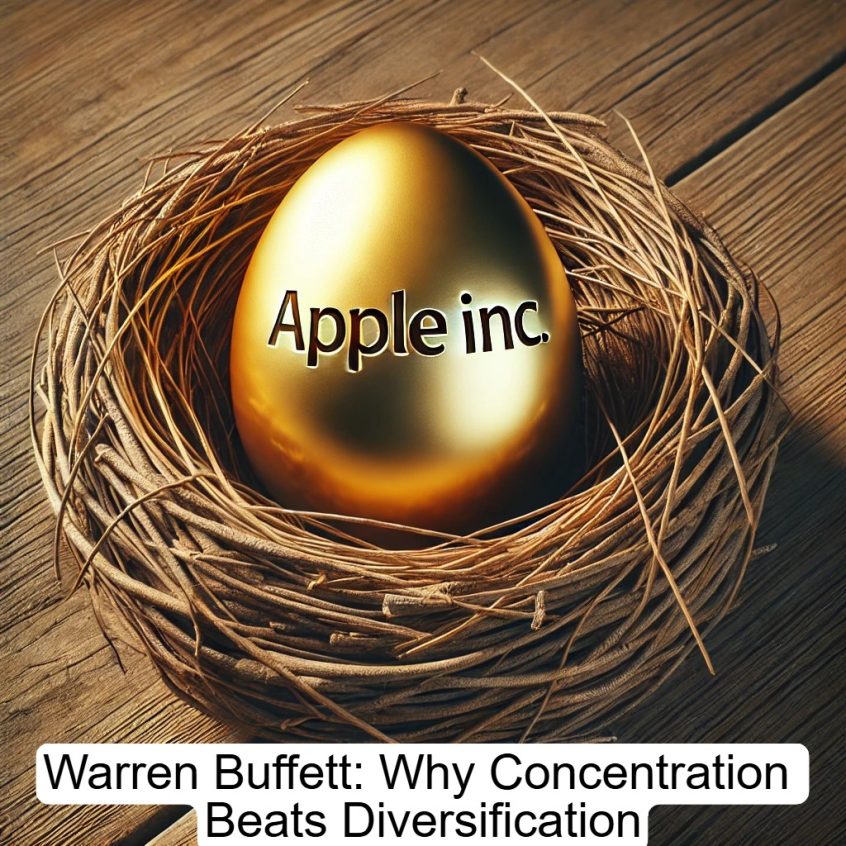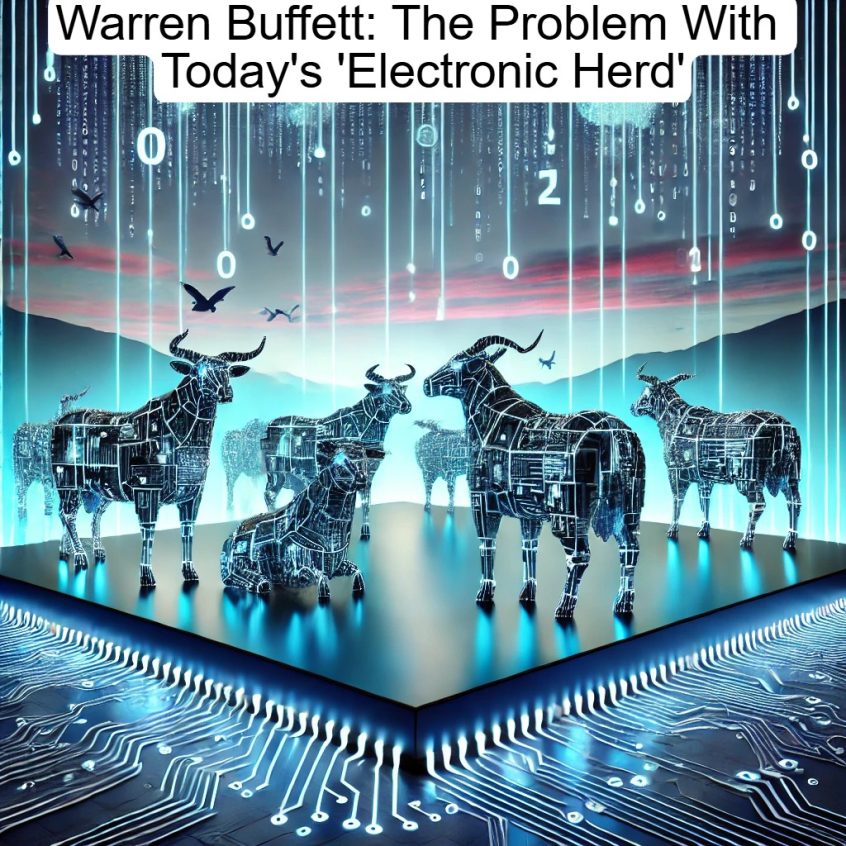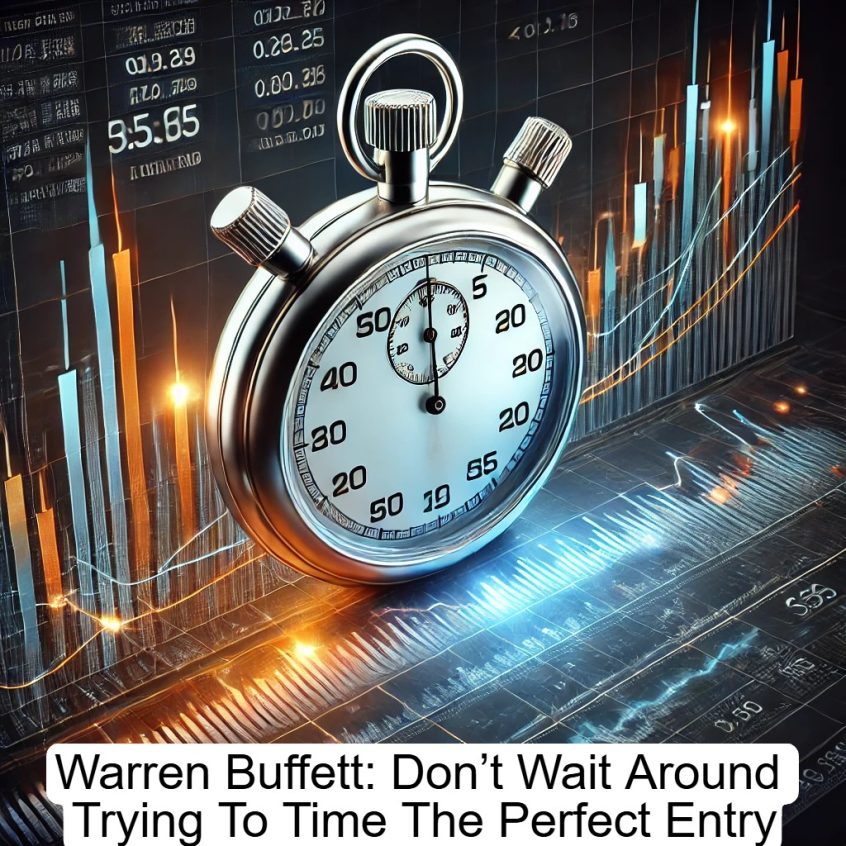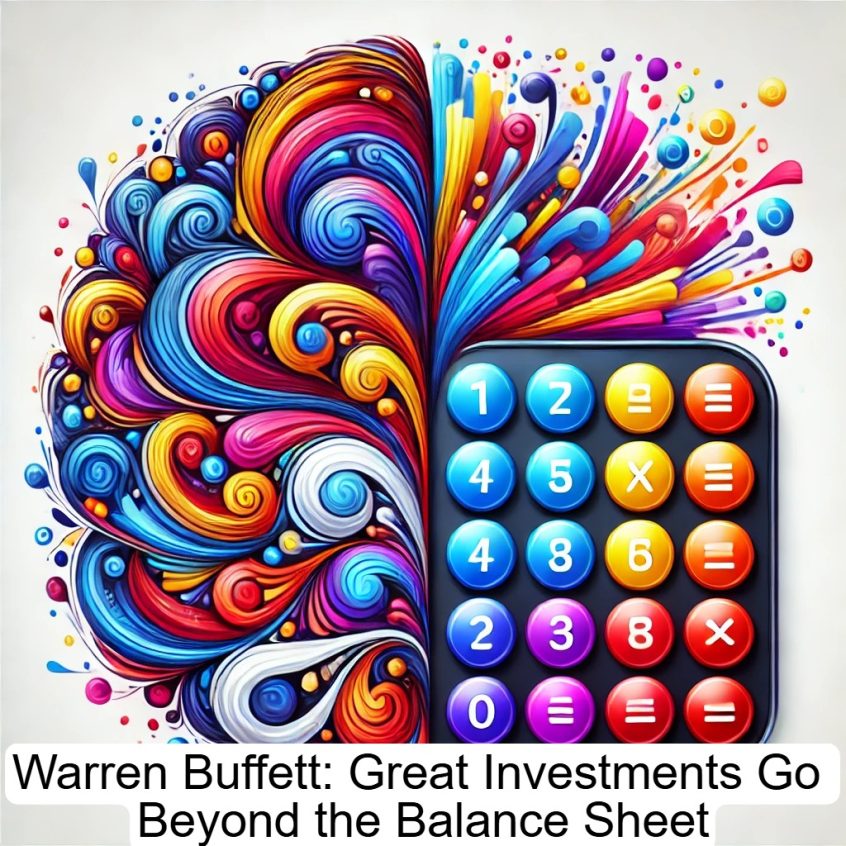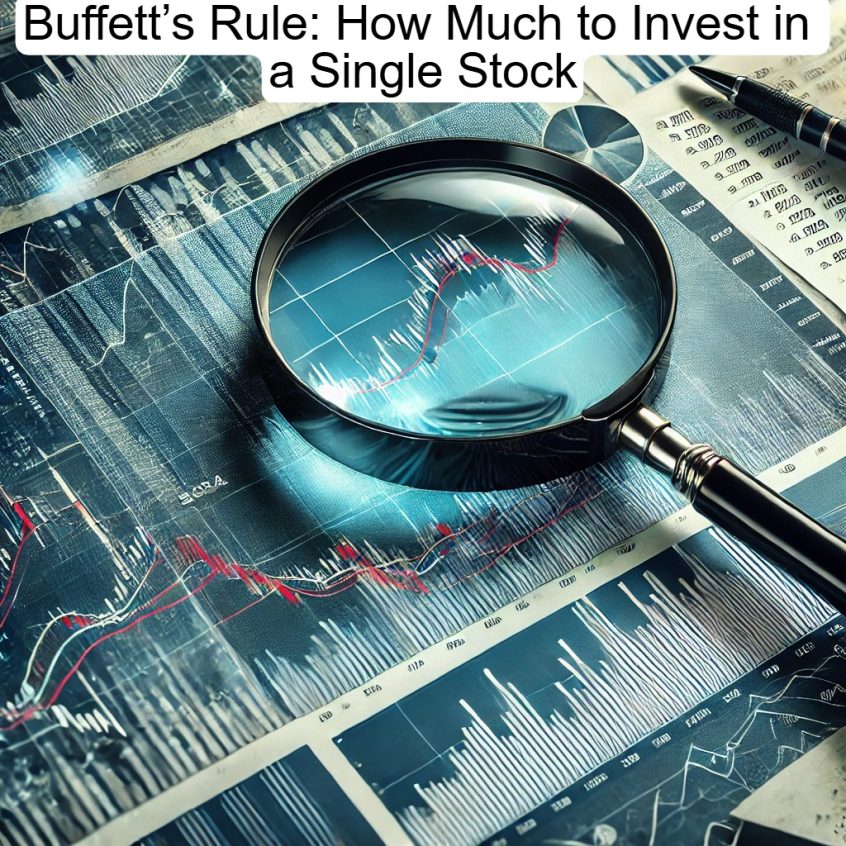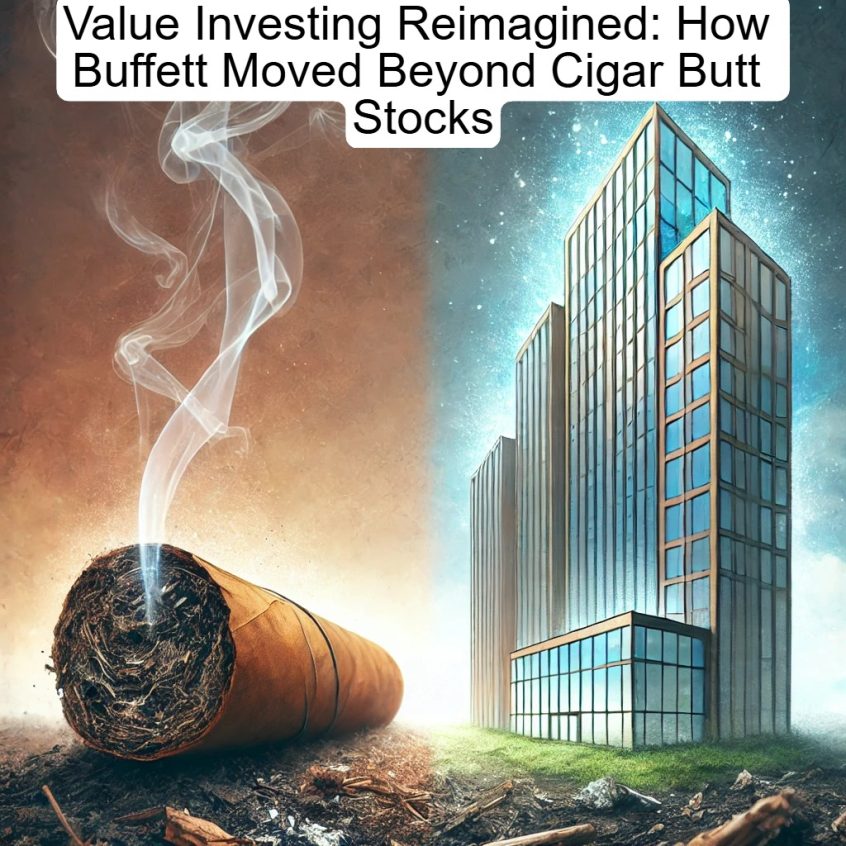In his 1993 Berkshire Hathaway Annual Letter, Warren Buffett explained how he and Charlie Munger figured out early that trying to make dozens of brilliant investment decisions is a losing battle. As Buffett puts it, “Charlie and I decided long ago that in an investment lifetime, it’s just too hard … Read More
Warren Buffett: The Problem With Today’s ‘Electronic Herd’
The stock market today feels like it’s running on caffeine – jittery, reactive, and prone to wild mood swings. Warren Buffett saw this coming way back in 2007 during the Berkshire Hathaway annual meeting when he described what’s fundamentally changed in markets. “There is an electronic herd of people around … Read More
Jean-Marie Eveillard On Buffett’s Counterintuitive Truth
One of my favorite value investor’s is Jean-Marie Eveillard. In his interview with the Graham & Doddsville Newsletter, Eveillard reminds us that Warren Buffett’s approach isn’t about rigid formulas—it’s about understanding what makes a business truly durable. As Eveillard puts it, Buffett’s genius lies in figuring out the “three, four, … Read More
Warren Buffett: Don’t Wait Around Trying To Time The Perfect Entry
Back in 2009, during a CNBC Town Hall Event with Bill Gates, Warren Buffett sat down and gave some of the most no-nonsense, practical investment advice you’ll ever hear. It was the aftermath of the financial crisis, panic was everywhere, and people didn’t know where to turn. But Buffett, he … Read More
Warren Buffett: Great Investments Go Beyond the Balance Sheet
Investing is a balance between hard data and good judgment. As Warren Buffett put it in his 1967 Partnership Letter, “The evaluation of securities and businesses for investment purposes has always involved a mixture of qualitative and quantitative factors.” On one side, you’ve got the believers in business fundamentals—the ones … Read More
Mohnish Pabrai: Buffett’s Geiger Counter Approach
An often-overlooked aspect of Warren Buffett’s investment philosophy is his ability to pivot when opportunities arise outside the mainstream equity markets. This flexibility is what Mohnish Pabrai calls Buffett’s “Geiger counter approach” in his book – Mosaic: Perspectives on Investing. The Geiger counter metaphor suggests an investor constantly scanning for … Read More
Buffett’s Rule: How Much to Invest in a Single Stock
As investors, we constantly grapple with the question of how much to allocate to each position in our portfolio. When students from Emory’s Goizueta Business School and the McCombs School of Business at UT Austin had the opportunity to visit Warren Buffett for a Q&A session, they gained valuable insights … Read More
Warren Buffett: Investing Without Hurdle Rates
At the 2007 Berkshire Hathaway Annual Meeting, Buffett addressed a topic that confounds many investors: discount rates and hurdle rates. Unlike Wall Street analysts who obsess over these metrics, Buffett made it clear that he and Charlie Munger don’t operate that way. “We don’t formally have discount rates,” he said. … Read More
Why Mohnish Pabrai Puts Nvidia, Tesla & Palantir in the “Too Hard” Pile
Investing is often shrouded in complexity, with analysts and retail investors alike trying to predict the future of companies like Nvidia, Tesla, and Palantir. But according to legendary value investor Mohnish Pabrai, most of these stocks belong in what Warren Buffett calls the “too hard” pile—a concept that could save … Read More
Warren Buffett: The Dangers of Overstimulation
In a world that glorifies hustle, constant activity, and the illusion of productivity, Warren Buffett’s timeless advice to MBA students at the University of Florida in 1998 serves as a stark reminder: sometimes, the best action is inaction. His words, delivered over two decades ago, remain as relevant today as … Read More
Warren Buffett: The Simple Math of Share Repurchases
In his 2022 Berkshire Hathaway Annual Letter, Warren Buffett once again demonstrates his unparalleled ability to distill complex financial concepts into simple, relatable truths. His discussion on share repurchases is a masterclass in clarity and logic, offering a timely reminder of why thoughtful capital allocation matters. As Buffett writes, “The … Read More
Warren Buffett: The Wisdom in Owning Our Mistakes
Mistakes—no one likes to admit them, yet they are inevitable, even for the most successful investors and business leaders. Warren Buffett, in his 2024 Berkshire Hathaway Annual Report, does something that few corporate leaders dare to do: he openly acknowledges his errors. “Sometimes I’ve made mistakes in assessing the future … Read More
Warren Buffett – Top 10 Holdings – Latest 13F
One of the best resources for investors are the publicly available 13F-HR documents that each fund is required to submit to the SEC. These documents allow investors to track their favorite superinvestors, their fund’s current holdings, plus their new buys and sold out positions. We spend a lot of time … Read More
Value Investing Reimagined: How Buffett Moved Beyond Cigar Butt Stocks
Warren Buffett’s approach to investing has evolved significantly over the decades, and his remarks during the 2003 Berkshire Hathaway Annual Meeting offer a glimpse into that transformation. What began as a strict adherence to Benjamin Graham’s quantitative approach to investing eventually shifted toward a more nuanced understanding of business quality—largely … Read More
Comprehensive Analysis of Warren Buffett’s Q4 2024 Portfolio Changes
Following is a comprehensive analysis of Warren Buffett’s Q4 2024 portfolio changes compared to Q3 2024. Key Observations No major changes in top holdings like Apple (AAPL), American Express (AXP), and Coca-Cola (KO), though some valuation shifts. Financial sector trims, particularly in Bank of America (BAC) and Citigroup (C). New … Read More
Warren Buffett: Why Temperament Matters More Than IQ In Investing
When Warren Buffett spoke at the 2004 Berkshire Hathaway Annual Meeting, he reinforced a simple yet powerful truth: the fundamentals of investing have not changed over time. “There’s nothing different, in my view, about analyzing securities now than there was 50 years ago,” Buffett stated. That statement, coming from one … Read More
How Warren Buffett Found 50% Returns – And Why You Still Can
Warren Buffett’s investment track record is legendary, but what’s even more remarkable is how consistent his core philosophy has remained over the decades. At a University of Kansas Q&A in 2005, Buffett shared insights that are as relevant today as they were in his early investing days. Reflecting on his … Read More
Warren Buffett: Why Great Investment Opportunities Will Always Exist
Warren Buffett has long been admired for his ability to simplify the complexities of investing. Unlike many on Wall Street who rely on complex financial models and forecasts, Buffett has built his fortune by understanding something much more fundamental—human behavior. His insights, shared during a 2007 Q&A session at the … Read More
Warren Buffett: – The Investor’s Equation
In his 1977 Fortune article, How Inflation Swindles the Equity Investor, there’s a section titled – The investor’s equation in which Warren Buffett delivered a sobering analysis of how inflation and valuation affect investment returns. More than four decades later, his insights remain just as relevant. Buffett makes it clear … Read More
Warren Buffett: The Cinderella Syndrome in Investing
In his 2000 Berkshire Hathaway Annual Letter, Warren Buffett warned investors about the dangers of speculation and irrational exuberance. Reflecting on the market mania of the late 1990s, he wrote: “The line separating investment and speculation, which is never bright and clear, becomes blurred still further when most market participants … Read More

